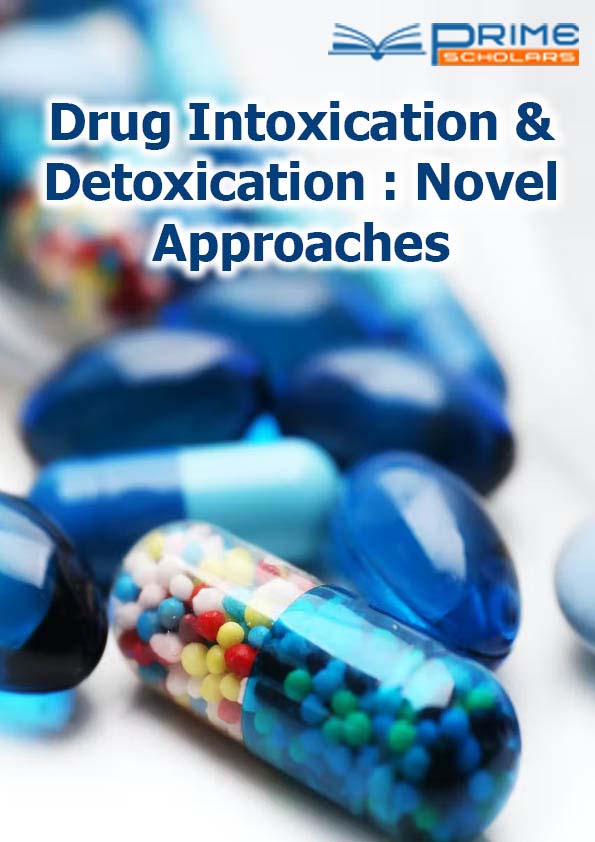Perspective - (2023) Volume 4, Issue 2
Liquor Habit, Stomach Microbiota, and Liquor Addiction Treatment: A Survey
Shaw Chen*
Department of Psychiatry, Taitung MacKay Memorial Hospital, Taiwan
*Correspondence:
Shaw Chen,
Department of Psychiatry, Taitung MacKay Memorial Hospital,
Taiwan,
Email:
Received: 31-May-2023, Manuscript No. DIDNA-23-16838;
Editor assigned: 02-Jun-2023, Pre QC No. DIDNA-23-16838 (PQ);
Reviewed: 16-Jun-2023, QC No. DIDNA-23-16838;
Revised: 21-Jun-2023, Manuscript No. DIDNA-23-16838 (R);
Published:
28-Jun-2023, DOI: 10.36648/DIDNA 4.2.17
Introduction
Alcohol use disorder (AUD), or commonly referred to as alcohol
fixation, is a major risk factor for death and disability in individuals.
Alcohol has a significant impact on the life expectancy
and personal well-being of AUD patients and their families.
Alcoholism is a brain problem that involves the mind’s reward
circuitry, and AUD patients are at increased risk of discomfort,
depression, cognitive impairment, and illicit drug use. Alcoholism
is clearly associated with liver infections such as alcoholic
hepatitis and cirrhosis, which are leading causes of individual
mortality and systemic disability.
Description
Alcohol compulsive disorder is a persistent illness characterized
by relapses and declines. According to the symptom and
measurable manual of mental problems (DSM-V), 5th Edition,
AUD is associated with brain deficits and control, including increased
resilience, withdrawal, uncontrolled increased intake,
and cravings for alcohol.
The clinical results of current mediation are mixed, and mediation
has shown little impact on further increases in recidivism.
Because many people with AUD develop alcohol-related
illnesses, the need for further care is very high. In exceptional
cases, CSF liver infections are associated with alcoholism. Alcohol
consumption impairs the function of the gastrointestinal
tract, increases the permeability of the digestive system and
alters the structure of the gastric vegetation. These advances
have yielded several achievements.
Local inflammation caused by bacteria in the digestive system,
weak enterohepatic circulation of bile acids, deficiency of thiamine
due to inadequate intake. However, the relationship
between alcohol obsession and the stomach-liver-heart hub is
unclear. Few studies have focused on how misalignment of the
gastrointestinal, liver, and cerebral hubs affects mental function, especially intellectual capacity, in patients with AUD. We
survey the current literature and attempt to trace the relationship
between alcoholism and the stomach, liver, and heart center.
In addition, we indicate a possible therapeutic focus with
respect to CSF fixation.
Alcoholism is closely associated with other mental illnesses
such as severe stress problems, bipolar problems, and tension
problems. Thinking problems, such as serious distressing
problems, often precede the development of alcoholism. For
example, people use alcohol when they are in a bad mood.
The severity of alcoholism is related to the intensity of alcohol
cravings, mental breakdown, discomfort, and distressing side
effects. As mentioned above, baseline arousal may play an important
role in the progression of alcohol use. Gastric obstruction,
rupture, and deterioration in both the stomach and liver
can cause peripheral inflammation and mental deterioration,
leading to deterioration of synapses such as microglia and astrocytes.
The infectious behavior hypothesis may link underlying
exacerbations to both alcohol compulsions and mood
problems. The hypothesis is that peripheral deterioration, such
as gastric fractures, strengthens the framework of invincibility,
releasing cytokines that can reach the cerebrum and cause fever,
fatigue, drowsiness, poor concentration, and withdrawal
from social cooperation.
Conclusion
Based on the fact that it generates continuation of the above
behaviors can lead to disastrous side effects. Alcoholism and
alcoholism are associated with significant exacerbations, the
causes of which are still unknown. Over time, a combination
of alcoholism and pessimistic emotions such as nervousness
and misery have been closely associated with drug seeking behaviour
and relapse, suggesting that reducing the underlying
exacerbation may affect mental health. It has been shown to
be able to give and prevent relapse.
Citation: Chen S (2023) Liquor Habit, Stomach Microbiota, and Liquor Addiction Treatment: A Survey. Drug Intox Detox: Novel
Approaches. 4:17.
Copyright: © Chen S. This is an open-access article distributed under the terms of the Creative Commons Attribution Li-
cense, which permits unrestricted use, distribution, and reproduction in any medium, provided the original author and source
are credited.
